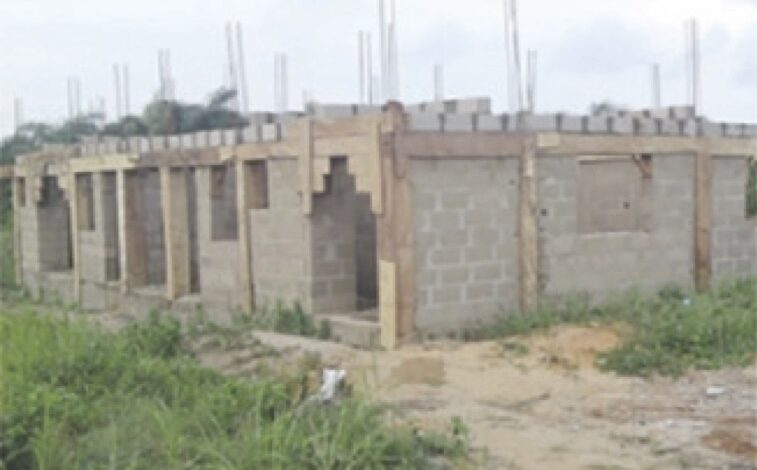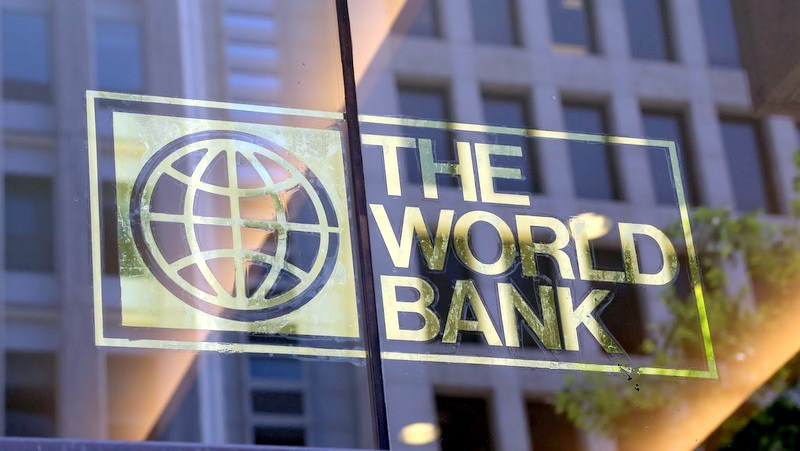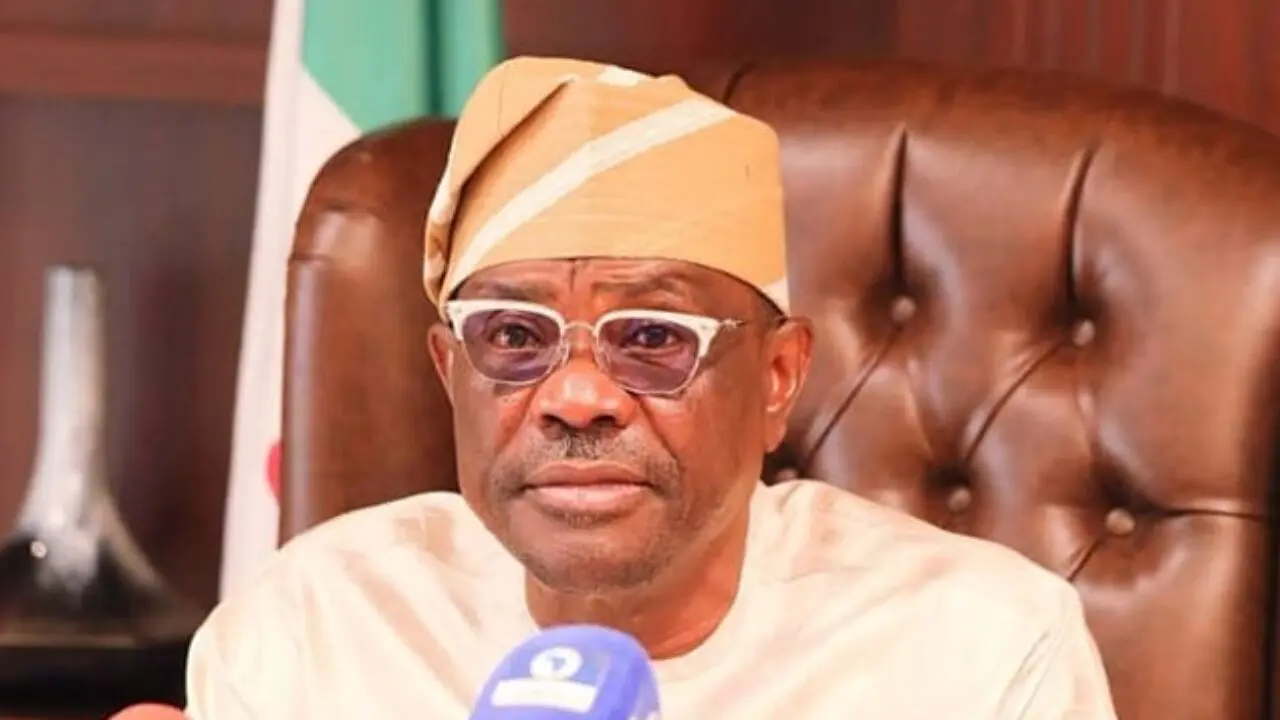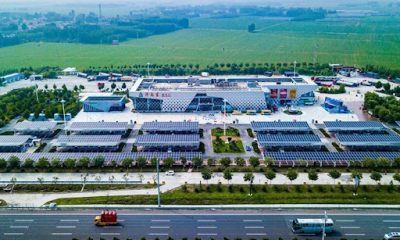Business
Builders Abandon Sites as Soaring Costs of Materials Plague Nigeria’s Construction Industry

The Nigerian construction industry is grappling with a severe crisis as the cost of building materials reaches unprecedented heights amidst ongoing economic challenges. This surge in prices is compelling many builders to abandon their construction sites, exacerbating the acute housing shortage in major urban areas. With the rapid expansion of urban populations and a lagging housing supply, the situation is nearing a critical point, potentially leading to increased homelessness and overcrowded living conditions.
Escalating Costs of Essential Materials
The sharp rise in prices affects a broad spectrum of building materials. Essentials such as cement, steel rods, paints, tiles, sand, wood, sanitary wares, roofing sheets, nails, electrical fittings, and even water have all experienced significant price hikes. Cement prices, for example, have soared from approximately N7,500 to N8,200 per 50kg bag, reaching between N13,000 and N15,000. Similarly, the cost of softwood has risen from N400 to N650, while hardwood prices have also climbed. Additionally, the cost of binding wires has more than doubled, and roofing a standard three-bedroom house now ranges between N1.2 million and N1.5 million, depending on material choices and transportation expenses.
Impact on the Industry
Merckson Innocent Okoro, Principal Partner at MI Okoro and Associates, attributes these rising costs to high exchange rates and economic difficulties affecting the importation of building materials. The reliance on imported materials due to a lack of local alternatives drives up costs and affects housing affordability. Developers, facing higher construction costs, are often forced to price properties in dollars despite regulatory restrictions, further exacerbating the housing crisis.
Kunle Awobodu, former President of the Building Collapse Prevention Guild (BCPG), points out that the skyrocketing prices are leading some projects to be abandoned. Fluctuating prices and market forces impact construction budgets, often compromising material quality and project integrity. Awobodu urges building professionals, homeowners, and developers to prioritize quality and adapt to the challenging market conditions.
Government’s Role and Future Outlook
Mr. Uchendu Nicholas, a prominent cement distributor in Festac, reports that cement prices have stabilized at around N14,200 to N16,000 per bag following earlier hikes. He advocates for government intervention to address price volatility, particularly during the rainy season when construction demand typically wanes. Nicholas highlights the need for a regulatory price control mechanism to prevent unpredictable costs and alleviate financial strain on builders.
Real estate developer McCmillan Nwose emphasizes that rising costs are impacting construction timelines and project feasibility. He notes that the cost of building a duplex in Nigeria can range between N37 million and N120 million, depending on factors such as location, design, and materials. Nwose advises prospective builders to carefully plan their budgets, choose reputable developers, and explore financing options that align with their financial constraints.
Experts agree that the current state of Nigeria’s construction industry underscores the urgent need for more sustainable and cost-effective building solutions. As material costs continue to rise, both individual builders and large-scale developers must navigate these challenges with strategic planning and adaptability. Collaboration between government bodies, industry stakeholders, and financial institutions will be crucial in addressing these issues and ensuring that Nigeria’s housing market can meet the growing demands of its urban population.
Business
Shehu Sani Criticizes World Bank Over Nigeria’s Economic Outlook

Former Kaduna Central Senator Shehu Sani has criticized the World Bank for worsening Nigeria’s economic difficulties. In a post shared on X, Sani accused the institution of projecting that Nigeria’s hardship would extend for another 15 years before the country could reach a better economic future. He questioned how many Nigerians would be left to enjoy that future, and how many African nations the World Bank has successfully helped to prosperity.
Sani’s remarks follow the World Bank’s latest *Africa’s Pulse* report, which forecasts that the Nigerian Naira will be among the worst-performing currencies in Sub-Saharan Africa by August 2024. The report placed the Naira’s decline alongside that of the Ethiopian Birr and South Sudanese Pound.
Business
HIG: Building Trust and Driving Innovation in Nigeria’s Insurance Market

Heirs Insurance Group (HIG) recently announced impressive financial results for the 2023 fiscal year, marking significant growth across all key metrics. The Group’s Gross Written Premium (GWP) surged by 59.3%, from N19.9 billion in 2022 to N31.7 billion in 2023. This remarkable performance underscores HIG’s resilience and operational efficiency, further solidifying its position as one of Nigeria’s fastest-growing insurance firms.
Heirs General Insurance (HGI) saw a 77% increase in GWP, reaching N12 billion in 2023. HGI’s profit before tax (PBT) also rose by 203%, reflecting the company’s effective cost management. Similarly, Heirs Life Assurance (HLA) reported a 71% GWP increase and a staggering 395% rise in PBT. Both companies have demonstrated a strong commitment to customer satisfaction, disbursing billions in claims.
Beyond financial success, HIG actively engages in corporate social responsibility (CSR) projects, contributing over N100 million to education, community development, and financial literacy. With plans for future expansion and innovation, HIG is poised to remain a key player in Nigeria’s evolving insurance market.
Business
Wike Urges Nigerians to Pay Taxes for Improved Social Services

Federal Capital Territory (FCT) Minister, Nyesom Wike, has called on Nigerians to fulfill their tax obligations, emphasizing that government revenue is essential for delivering social services. Wike made this appeal during the inaugural Abuja Business and Investment Summit, held in Abuja on Wednesday.
Speaking on the summit’s theme, “Optimising Investment Through Partnerships,” Wike stressed the importance of collaboration to generate investment opportunities. He dismissed the misconception that the government does not need revenue, explaining that taxes are crucial for funding public services.
Wike reiterated that both investors and the government must benefit from such partnerships, ensuring that both parties “go home smiling” through a fair exchange of services and taxes.
-

 Business17 hours ago
Business17 hours agoOkpella Monarch: Obaseki Ratified Kingmakers Decision, End 5years leadership Vacuum
-

 Banking13 hours ago
Banking13 hours agoFree Food Saga: Akpabio quoted out of context-CSO
-

 Foreign17 hours ago
Foreign17 hours agoSci-tech innovation fuels China’s high-quality development
-

 Entertainment9 hours ago
Entertainment9 hours agoDavido Declares ‘Timeless’ His Best Album
-

 Entertainment9 hours ago
Entertainment9 hours ago‘Adire’ Secures Four Nominations at the Best of Nollywood Awards
-

 Business10 hours ago
Business10 hours agoWike Urges Nigerians to Pay Taxes for Improved Social Services
-

 Foreign11 hours ago
Foreign11 hours agoQinling Mountains better safeguarded with comprehensive digital platform
-

 Foreign11 hours ago
Foreign11 hours agoExpressway service station in Shandong achieves carbon neutrality






